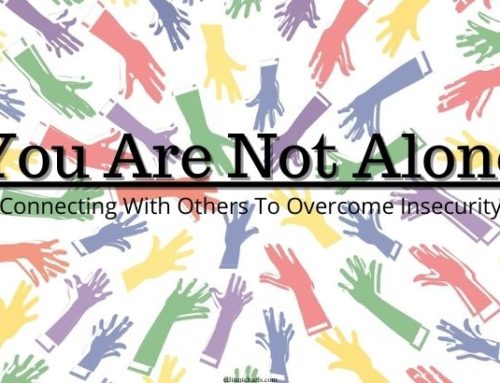Life is but a series of moments. This, right here, right now is a moment. But are you really living in it? Or are you thinking about something else?
If you’re like me, you’re constantly thinking about the future and/or the past. And there’s nothing wrong with that.
In fact, it’s perfectly normal. Our brains are wired to analyze past events so we don’t repeat the same mistakes. And we think about future events so we are prepared for what happens.
But this comes at a price. And that price is missing out on the present.
When we get trapped in the future/past
Table of Contents
We all need to think about the future sometimes. From what we’re having for dinner tonight, to where we want to be in 10 years, it’s good to think about the future sometimes.
And it’s also good to think about the past. We can look at the things we’ve done and figure out what mistakes we’ve made so we don’t make them again.
But when we can’t stop thinking about the future and past is when things get troubling. Actually, this is at the root of all anxiety disorders.
Take Post-Traumatic Stress Disorder (PTSD) for example. After an extremely traumatic event like being sexually assaulted or experiencing the horrors of war, it’s common for people to get stuck thinking about those experiences over and over again. They replay these horrific events in their minds over and over, unable to live in the moment.
Then there’s Generalized Anxiety Disorder (GAD). This is a very common disorder, where people get stuck worrying about the future. And 99% of what they worry about will never happen.
 For those of us living with chronic illnesses, it can be very easy to get stuck thinking about the past or worrying about the future. We dwell on the terrible symptoms we’ve had to endure or worry about all the cool stuff we wanted to do in life but can’t because of our illnesses.
For those of us living with chronic illnesses, it can be very easy to get stuck thinking about the past or worrying about the future. We dwell on the terrible symptoms we’ve had to endure or worry about all the cool stuff we wanted to do in life but can’t because of our illnesses.
It’s normal to think about the future and the past sometimes. But when you can’t stop dwelling on the past or worrying about future events, it becomes a problem.
The freedom of now
There is nothing more liberating than living in the moment. All the fears about the future and regrets of the past disappear when you’re living in the moment.
Think about the happiest times of your life. You were probably doing something you love, probably with people you care about.
When you reflect on those happy times, do you remember what you were thinking about at the time? I’m guessing you probably weren’t thinking about anything. And that’s because you were living in the moment.
But you don’t have to be having the time of your life to live in the moment. Even if you’re burdened with a chronic illness, chronic pain, or whatever, you can get better at being present in the here and now. There are things that you can do to learn to let go of the past and the future, if only for a few minutes.
When you catch yourself dwelling on the past and the future, try some these techniques to bring your attention to the present moment.
How to live in the moment
Yesterday is history,
Tomorrow’s a mystery,
But today is a gift –
That’s why it’s called the present.
Learn to meditate
Meditation is all about learning to be present in the moment. Like anything, it’s a skill that can be learned over time with a little bit of practice.
 All you have to do to get started is find a quiet place to sit. Just sit quietly with your back straight if you’re able to. If you can’t sit up straight, that’s okay. You can meditate from any position. You want to be comfortable, but not too comfortable. The point is to clear your mind – not to fall asleep.
All you have to do to get started is find a quiet place to sit. Just sit quietly with your back straight if you’re able to. If you can’t sit up straight, that’s okay. You can meditate from any position. You want to be comfortable, but not too comfortable. The point is to clear your mind – not to fall asleep.
Try to clear your mind. Thoughts will arise. Just gently let them go. You can address all those thoughts in a few minutes. I suggest starting small. Like, really small. If you’ve never attempted to meditate before, just sit for one minute.
That’s right, one minute. I think a lot of people get discouraged with meditation because they try to clear their mind for much longer. Even 5 minutes is too long for most beginners. It can be uncomfortable if you’re not used to not thinking for that long.
Meditation can be frustrating at first. But the more you do it, the easier it gets and the more rewarding it becomes. And it will help you live more in the moment.
Find something to be thankful for
What, right now, are you thankful for?
Every person on this planet has something, right here, right now, that they can be thankful for. Being thankful for something, in the moment, forces us to acknowledge that things are alright. At least right now they are.
I think it’s important to find a at least few minutes every day to be thankful for things. Sometimes we get so caught up in all the things that go wrong in our lives, we lose sight of all the good things.
 If you’re living with a chronic illness or are constantly in pain, it can be really hard to be thankful for anything. Believe me: I know. But no matter how bad things get, there’s always something positive to focus on.
If you’re living with a chronic illness or are constantly in pain, it can be really hard to be thankful for anything. Believe me: I know. But no matter how bad things get, there’s always something positive to focus on.
What do you have to be thankful for? Do you have any family and friends who care about you? Do you have a place to live? Food to eat? Your vision? Ability to walk?
For me, simply being alive and able to move is something to be thankful for. Every day I’m able to get up and get out into the world, I’m thankful for the chance. I’ve spent more days than I can count stuck in bed either at home or in the hospital. Simply getting out of bed is something I’m extremely thankful for.
Every day, find something that’s in your life right now to be thankful for. This will help you live more in the moment. And it may even put a smile on your face.
When talking with someone, really listen
When conversing with other people, pay more attention to what they are saying. Learn to really, really listen to what people have to say.
 A lot of the time while other people are talking, we aren’t really listening to them. We’re thinking about what we’re going to say when they stop talking. Or we’re thinking about what we’re going to do later in the day. Or we’re wondering if they notice the big zit on our forehead. Or we’re thinking about [insert anything other than what they’re saying here].
A lot of the time while other people are talking, we aren’t really listening to them. We’re thinking about what we’re going to say when they stop talking. Or we’re thinking about what we’re going to do later in the day. Or we’re wondering if they notice the big zit on our forehead. Or we’re thinking about [insert anything other than what they’re saying here].
Stop thinking and start listening. Really listen to what people have to say.
Listen not only to their words, but to their body language, the tone and cadence of their voice, and to the other non-verbal ways we communicate. Learning to really listen to others forces us to live in the moment. And it takes our focus off ourselves.
Appreciate the little things
There are so many wonderful things we experience every single day that slip right by us because we are thinking about other things.
Stop to appreciate the little things.
If you’re like a lot of people, you like to have a snack at the end of the day. I know I do. But do you just inhale that snack without paying attention to it?
 I’ve downed entire bags of chips while watching TV without appreciating a single crunch. And, I have to ask myself: what’s the point? What’s the point of pigging out on junk food that has little nutritional value if you’re not going to enjoy it?
I’ve downed entire bags of chips while watching TV without appreciating a single crunch. And, I have to ask myself: what’s the point? What’s the point of pigging out on junk food that has little nutritional value if you’re not going to enjoy it?
Now I try to appreciate my food. I savor every bite. It’s all about learning to appreciate the little things. This has two benefits.
First, it forces me to be in the moment by focusing on what I’m eating right now. And second, doing this has helped me to weed out some junk foods I was eating but not really enjoying.
Learning to appreciate food is just one example. Stop and appreciate a beautiful sunset. A child’s laughter. The fact that you finally beat that level of Candy Crush Saga you’ve been stuck on.
It doesn’t matter what it is. Just find a few little things to be thankful for every single day.
Find your flow
There’s an idea in psychology called flow. I’ve never like the term, personally. But psychologist Mihaly Csikszentmihali must have, because he’s the one that named it.
 Flow is a mental state where you are so immersed in what you are doing that you completely forget about everything else. This is the ultimate way to live in the moment. Find whatever it is that you love doing so much that it makes you forget about everything else.
Flow is a mental state where you are so immersed in what you are doing that you completely forget about everything else. This is the ultimate way to live in the moment. Find whatever it is that you love doing so much that it makes you forget about everything else.
The idea of flow isn’t new. It’s been around for thousands of years. And it shouldn’t be new to you. Have you ever felt like you were in the zone? That’s flow.
I consider myself to be very lucky. There are tons of different things I enjoy doing so much that I feel as if the rest of the world disappears. Playing guitar, piano, working out, writing, and reading can all quickly put me in a state of flow.
Is there anything you love doing so much that it makes you forget about everything else? If yes, then this is a great way to live in the moment. If not, then you need to try some new things!
Try something new
Doing something new forces us to live in the moment. When we’ve done something a million times, we don’t have to think about it: we just do it.
 Take driving, for example. If you are an experienced driver, then you probably don’t think about driving while you’re doing it. Your just go into autopilot, allowing your mind to wander into the future or the past.
Take driving, for example. If you are an experienced driver, then you probably don’t think about driving while you’re doing it. Your just go into autopilot, allowing your mind to wander into the future or the past.
But do you remember when you were first learning to drive? You had to be totally focused on what you’re doing, constantly aware of your surroundings. Learning something new forces us to focus on the here and now.
Conclusion
We can all benefit from learning to live less in the past and future, and more in the moment. Like anything, learning to live in the moment is a skill that can be learned. It just takes patience and practice.
But once you learn to do it, you can do it at will. If you find yourself dwelling on the past or obsessing about the future, you can use the techniques above to center yourself on the here and now.
To quote Ferris Bueller, “Life moves pretty fast. If you don’t stop and look around once in a while, you could miss it.”
Start living more in the moment. It’s too good to miss.
Join the Ellis Michaels mailing list to stay up to date with news, new releases, and more.







Leave a Reply